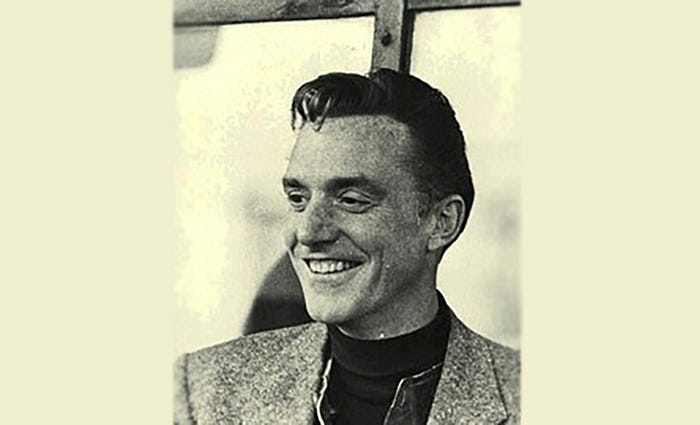Biography of Lew Welch

As it happens for many writers and artists, Lew Welch was often marked by uncertainty and conflicted with his role in society. He lacked the ability to meet goals he had set for himself and usually changed them anyway.
He was prone to mental breakdowns from the time he was a baby and suffered from this condition for the rest of his life. Because he lived with such mental turmoil, Lew Welch is another brilliant mind from a brilliant generation to have suffered an early death.
[This post has affiliate links, which means I may receive commissions if you purchase through links I provide.]
Lewis Barrett Welch, Jr. was born August 16, 1926, in Phoenix, Arizona, to Lewis Barrett Welch Sr. and Dorothy Brownfield Welch.
Following the birth of his sister, Welch’s parents’ separated and Dorothy moved the family to California in 1929. Most of his childhood consisted of being moved from town to town in California.
In 1944, while in school, Welch enlisted in the Army Air Corps and entered the Force after he graduated. He never saw active service and returned to California less than a year later, enrolling at Stockton Junior College. Here, he discovered his love for writing after reading Gertrude Stein’s Melanctha.
In 1948, Welch moved to Portland, Oregon to attend Reed College. His roommates would turn out to be Gary Snyder and Philip Whalen.
As Snyder and Whalen began making waves in the San Francisco poetry scene, Welch moved to New York City to work in the advertising industry. He has been credited with coming up with the slogan, “Raid Kills Bugs Dead.”
In New York, Welch suffered from an emotional and mental breakdown and moved to Florida to undergo therapy.
After he recovered, Welch enrolled in the Master’s program at the University of Chicago and studied philosophy and English. In 1953, he joined the advertising department of Montgomery Ward and shortly afterward he married Mary Garber.
Welch was working in Chicago at the time of the famous poetry reading at the Six Gallery in San Francisco, in which both Snyder and Whalen participated and became instantly famous.
Feeling the urge to get back into poetry, Welch applied for a job transfer to Montgomery Ward’s Oakland headquarters. Once back in California, he began to get involved in the San Francisco literary scene, becoming a cab driver so he could devote more time to writing. Welch was soon introduced to Beat heroes like Lawrence Ferlinghetti and Jack Kerouac, with whom he would later join on the road.
Although his marriage fell apart around this time, Welch was receiving positive feedback for his poems. In 1960, the anthology, The New American published his work. That same year Welch’s first book, Wobbly Rock, was published. In 1965, he published three more books, How I Work as a Poet, I Leo: An Unfinished Novel, and How I Read Gertrude Stein.
Welch continued to battle depression and drank heavily at this time, but he kept writing and from 1965 to 1970, taught a poetry workshop offered through the Extension program of the University of California at Berkeley.
In 1971, Welch returned to the mountains where Gary Snyder kept a cabin. On May 23, he is reported to have left Snyder’s place with only his gun. Snyder later found what appeared to be a suicide note in Welch’s truck, but his body was never recovered.
Lew Welch was a great American poet and inspiration to the Beats. In his novel, Big Sur, Jack Kerouac immortalized Welch as Dave Wain.
